7 Days is a weekly roundup of the Editors' picks of what's been happening in the world of technology - written with a dash of humor, a hint of exasperation, and an endless supply of (Irish) coffee.

The weekend has arrived once more, and that means it’s time to pause and catch our breaths, as we look back on another exciting week across the tech world. There were some major announcements, a few juicy rumors, and one or two surprises – and as ever, 7 Days is here to make sure you know exactly what’s been happening.

Our journey begins this week in China, where authorities are apparently preparing to launch an alternative to Wikipedia, bringing together "the biggest, most high-quality author team" in the world.

Underneath the obnoxiously large watermark in the image above, you'll see Fitbit's new smartwatch, which was revealed in leaked pictures alongside a new set of Bluetooth earbuds.

Qualcomm is reportedly preparing to ask the International Trade Commission to enforce an import ban on iPhones entering the United States. Apple recently stopped paying royalties to some of Qualcomm's partners in China, amid a bitter dispute between the two companies over Qualcomm's licensing fees.
Next week, Qualcomm will announce details of its new Snapdragon 660 processor chipset Mobile Platform for upper-mid-range devices.

Rival chipmaker Intel finally patched a security vulnerability that has existed in some of its products for almost a decade.
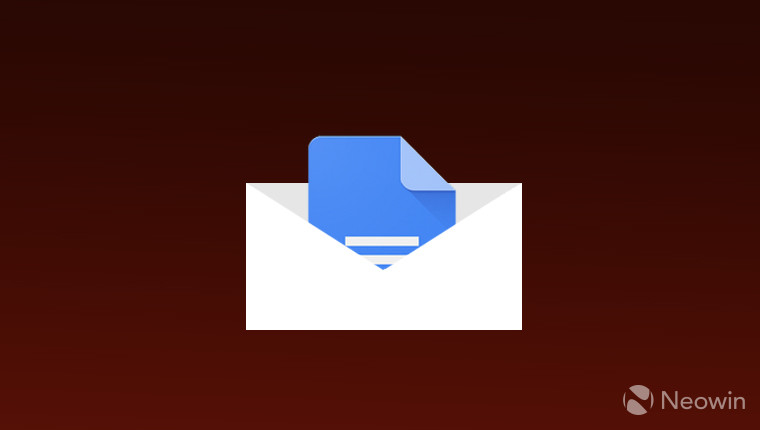
An email phishing scam attempted to ensnare users by linking to a shared Google Docs file, which routed users through a legitimate Google sign-in page, before a fake app requested authorization to access their emails.
Meanwhile, Google made changes to Gmail's security warnings to offer greater protection against phishing attempts.

O2, part of Spanish telecommunications giant Telefónica, revealed that some of its customers had had their bank accounts accessed by unknown third parties, as the result of a phishing attack combined with a known flaw in the SS7 protocol.

A hacker, going by the name 'The Dark Overlord', leaked episodes of the upcoming season of hit Netflix show Orange Is The New Black, after the company ignored demands for a ransom payment. The same hacker claims to have possession of a further 36 unreleased movies and TV shows, and has again threatened to release them online unless a payment is made.
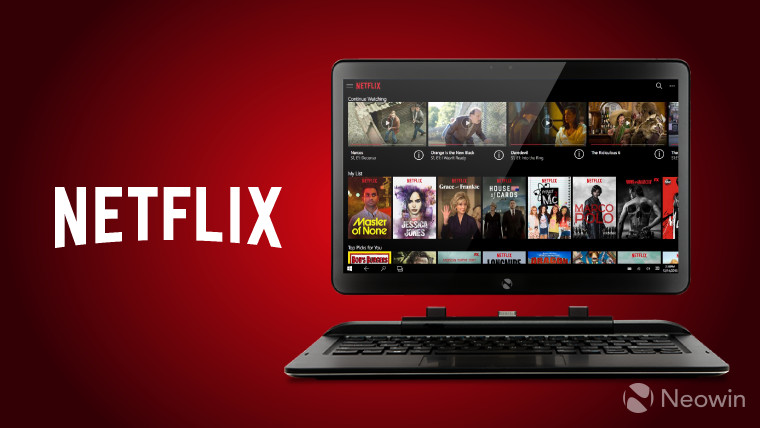
Netflix content can now be viewed in 4K via the Microsoft Edge browser or the official Netflix app on Windows 10, thanks to a new preview driver from Nvidia for its GeForce GTX 10xx-series graphics cards.
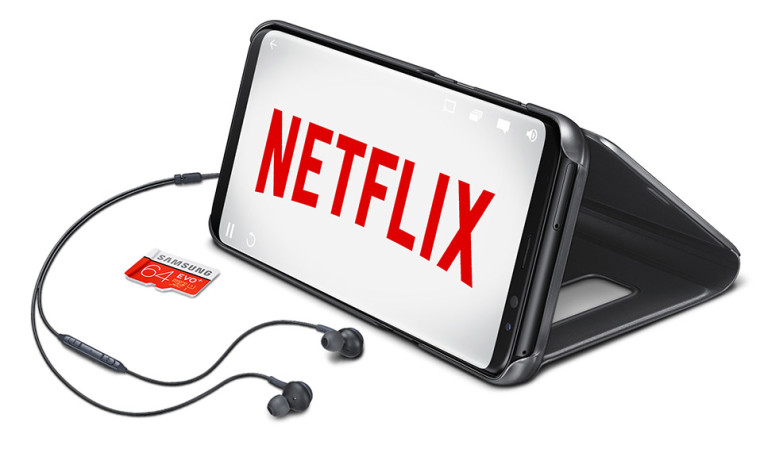
Samsung is hoping to attract more buyers to its Galaxy S8 flagships by offering them a free six-month Netflix subscription, 64GB microSD EVO+ card, and a Clear View Standing Cover.
Samsung began rolling out a software fix for red-tinted displays on the Galaxy S8 and S8+ in Europe, and on T-Mobile in the US, but another issue popped up this week, causing some of those devices to randomly reboot.

Buyers of LG's new G6 on T-Mobile can now get the device with $150 off, along with a free Google Home speaker and an LG G Pad X 8.0 tablet. LG is reportedly working on a 'G6 mini', which could prove popular among those who prefer a more compact flagship.

HTC won't officially unveil its new U 11 flagship until later this month - but thanks to a leak, it seems we now know all of its key specs.

OnePlus confirmed that its new Android flagship (gosh, there sure are a lot of flagships these days...) will be called the OnePlus 5, and will launch this summer. The company is skipping over the 'OnePlus 4' moniker as that number is considered unlucky in Chinese culture.
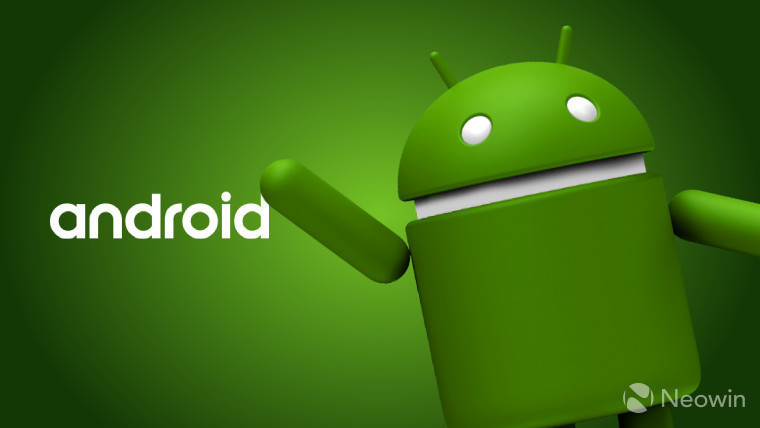
Google published its latest breakdown of Android usage, revealing that just 0.5% of active devices are running the latest Android release, version 7.1. Android 7.0 is now up to just 6.6%, almost nine months after its rollout began.
That long, slow rollout continues, reaching more devices this week:
- Samsung Galaxy S6, S6 edge and S6 active on AT&T
- Samsung Galaxy S6 edge+ on T-Mobile
- Samsung Galaxy A5 (2016)
- Honor 6X

Google released its latest monthly Android security update, and published new factory and OTA images for its supported Nexus and Pixel devices.

Details emerged of a new Android tablet in development by Motorola, with a 'premium look and feel', cellular connectivity, and a 'productivity mode', enabling users to pin apps to the nav bar.

With Google's latest update to Chrome on Windows, version 58.0.3029.96, users with a 64-bit version of the OS running a 32-bit version of the browser will be automatically migrated to the 64-bit browser, if they have auto-update enabled.

Google is getting ready to launch a major redesign of YouTube, including support for a dark theme - and it's got some big names onboard to support its stylish new look.
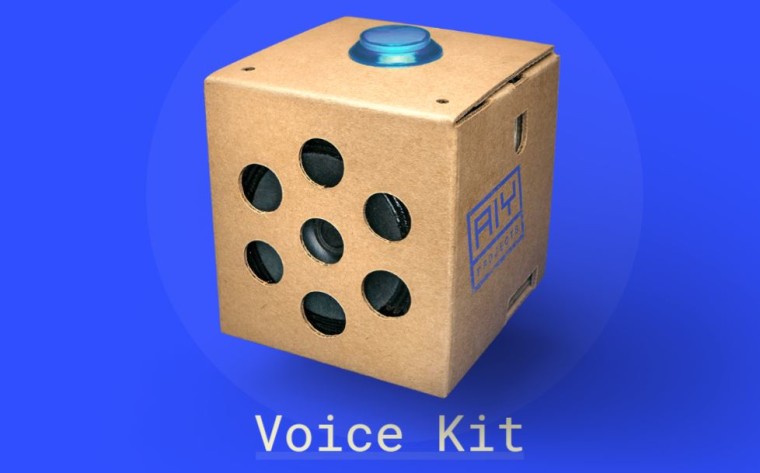
Google and The Raspberry Pi Foundation teamed up to offer a low-cost cardboard kit that makers can use to build their own version of Google Home, including voice control support through the Google Assistant SDK.
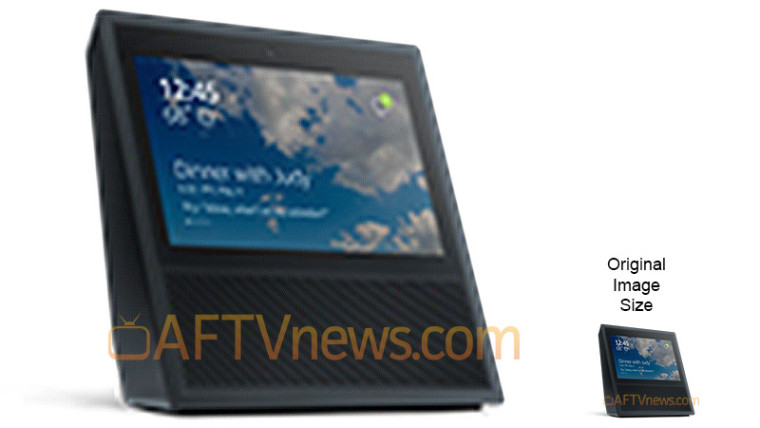
We've known since November that Amazon is working on a new Echo device, powered by its Alexa digital assistant, featuring a touchscreen and improved speakers - and the first images of that device appeared on Friday.

Apple will reportedly unveil its own high-end rival to the Amazon Echo at its Worldwide Developer Conference next month. The new voice-controlled speaker is said to have a cylindrical design, similar to that of the Mac Pro, and - unsurprisingly - will support Apple's Siri digital assistant.

Apple published its latest earnings report, revealing details of a very strong quarter for its services business, but a slight decline in iPhone sales, and a big drop in iPad sales.
Apple promised to invest $1 billion in US manufacturing, and claimed that it's responsible for creating two million jobs across the country, despite only employing 80,000 people.

Kensington released a new fingerprint scanner for PCs, priced at $50. The VeriMark sensor connects to a device via a USB port, and supports Windows Hello and FIDO.

Toshiba's new Portégé X30 is a Windows 10 notebook that also supports Windows Hello biometric authentication, and promises enterprise-class security through a range of features, including TPM 2.0, BitLocker Drive Encryption, a Smart Card reader, and more, priced from $1,449.

You don't need to spend a fortune to get Windows Hello support, though. The ASUS Transformer Mini is a 10.1-inch Windows 10 tablet that weighs just 790g with the keyboard attached, and has 4GB RAM, 64GB storage, and a kickstand similar to Microsoft's Surface tablets. The best bit is the price: it's now available in the US for just $249, including the keyboard and pen.

Microsoft is offering some big discounts on its Surface products in the UK. All Surface Pro 4 models are now available with up to 19% off, while Surface Book i7 models (excluding those with the new Performance Base) can now be purchased with up to £665 off, along with free Bowers & Wilkins headphones worth £119.99.

Microsoft also introduced its new Surface Arc Mouse, priced at $79.99, and available in three colors.

Two of the Arc Mouse colors match those of the new Surface Laptop, which Microsoft unveiled on Tuesday at an education-focused event in New York City.
Unlike previous Surface devices, the Laptop isn't attempting to define a new product category - beneath its (very!) pretty design, it's a surprisingly ordinary notebook, with its only truly distinguishing feature being the Alcantara fabric trim applied to its keyboard area. And while it has a touchscreen, and supports the Surface Pen, the display can't even be pushed back 180-degrees, so if you want to write on its screen, you'll have to do something like this:
The Surface Laptop certainly has premium pricing to match its premium styling - the entry-level model, which has just 4GB of RAM, and a 128GB SSD, costs $999, or £979 in the UK. For unexplained reasons, the four color options are only available on one model - the Core i5 version with 8GB RAM and 256GB SSD; but in the UK, and other markets, only the silver ("Platinum") color is offered across the entire range.
And even though you could be paying up to $2,199 for the range-topping model, you'll still have limited connectivity options: you'll only get one USB 3.0 Type-A port, a Mini DisplayPort, and a 3.5mm headphone jack. There's no microSD slot, and no USB-C support either, even though one of Microsoft's own promotional videos showed a Surface Laptop prototype with two USB Type-C ports.
Check out our hands-on first impressions of the Surface Laptop to find out more.

The Surface Laptop is also the first device to come with the new Windows 10 S edition, previously known as 'Windows 10 Cloud'. Windows 10 S only allows apps to be installed from the Windows Store, offering more security on devices, and limiting the impact of malware and viruses. It should also deliver better battery performance, thanks to restrictions on background tasks and services for apps installed from the Store. It will also prevent users from changing the default browser (Edge) and search engine (Bing).
Windows 10 S is primarily intended for the education market, but it still comes pre-installed on the Surface Laptop for consumers, although Microsoft is offering a free upgrade to Windows 10 Pro for those who buy the device until the end of the year. Anyone else who wants to upgrade a device that comes with Windows 10 S to the Pro edition will have to pay around $49 to do so.
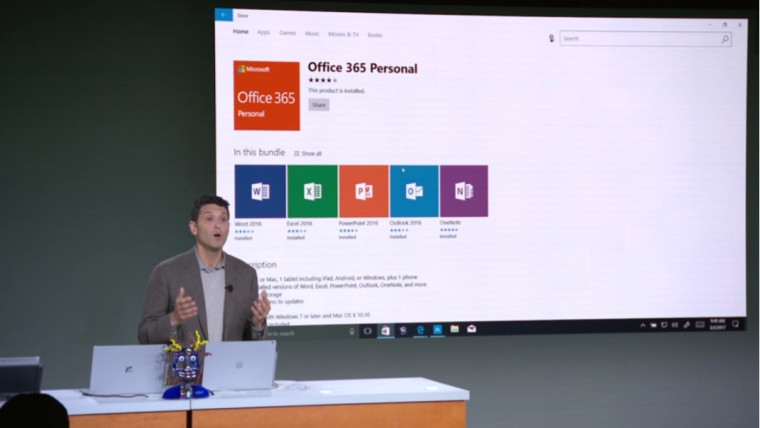
Since Windows 10 S devices can only run apps from the Windows Store, Microsoft also announced that its Office 365 desktop applications are also "coming soon" to the Store.

Spotify is coming to the Windows Store as well - but as it will be a simple Desktop Bridge 'conversion' of its existing desktop app, it will only be available for Windows 10 PCs, and not for other devices like phones or the Xbox One.

Cloud storage service MEGA will soon launch an app in the Windows Store too, built on Microsoft's Universal Windows Platform, and available on PCs and phones.

By the way, Microsoft has another launch event coming up later this month. The company revealed on Thursday that it "will show the world what's next" at an event in Shanghai on May 23, where it's likely to unveil its new Surface Pro 5.

Last weekend, Neowin exclusively revealed that Microsoft is planning to separate development of its Edge web browser from Windows 10 when it releases its next major update to the OS in September.
The Windows 10 Creators Update, which is currently rolling out to consumers, is the most recent such update for the OS. This week, Microsoft detailed some of the improvements to Edge that that update includes for IT pros and enterprise admins.
Meanwhile, Edge's share of the desktop browser market remains stagnant, while Chrome has increased its share to 63.45% since last month.

Microsoft brought its Focused Inbox feature to Outlook 2016, making it available to all users in the Office 365 First Release program - a big step towards rolling it out for everyone.
The company also released a new Outlook for Mac Insider Preview to the Fast ring, and finally added Outlook to its Office Insider Program on iOS.

Microsoft Teams - the firm's "chat-based workspace" app for Office 365 - got a big update with some handy new features on iOS and Windows 10 Mobile.

Last week, when Microsoft published its quarterly earnings report, I pointed out that its phone hardware business is now dead, with negligible revenue, and no new devices coming anytime soon. But Microsoft Technical Fellow Alex Kipman went even further this week, effectively declaring that the era of the smartphone is over: "The phone is already dead," he said. "People just haven't realized."

Microsoft's CEO Satya Nadella had a slightly different take on things, saying: "I'm sure we will make more phones, but they will not look like phones that are there today."

Could he be referring to Westworld-style foldable phones? Well... we can dream - but it's probably best not to get your hopes up.

Microsoft is continuing to work on Windows 10 Mobile in a separate 'feature2' branch, having split its development from the main Redstone 3 (RS3) branch a few weeks ago. It released a new Windows 10 Mobile Insider Preview, build 15210, to the Fast ring on Wednesday.

On the same day, Windows 10 build 16188 rolled out to PCs in the Fast ring from the RS3 branch, bringing a range of additions and improvements, including a new Cortana section in the Settings app, new Edge PDF Reader functionality, a better update experience, and more. The fixes and known issues for that build can be found here.
It seems clear that Windows 10 development for PCs is currently proceeding at a far greater pace than for phones.

Windows 10 has apparently reached a plateau on Valve's Steam gaming platform, after hitting an all-time high of 51.2% of gamers there last month.
Valve announced an overhaul of its gifting system, and revealed a range of improvements to its customer support system.

Xbox chief Phil Spencer said he believes that Microsoft's first-party studios should be "a beacon of innovation for how our platform is being used". He cited Gears of War 4 as an example of this, with its introduction of cross-play between Xbox One consoles and Windows 10 PCs.

Gears of War 4 got its latest update this week, with two new maps, multi-GPU support on Windows 10 PCs, and more.

Microsoft added five more Xbox 360 games to its list of those playable on the Xbox One through its Backward Compatibility program. That list has been growing fast lately, and it won't be long before it reaches the next milestone of 400 titles.

Nearly 11 years after the original game was released, the new Prey made its official debut on the Xbox One, PlayStation 4, and PC. Nvidia's latest GeForce driver update includes optimizations for the game.

Sony revealed that it will hold its media briefing at the E3 gaming expo on June 12. Expect to see plenty of exciting announcements there, including a ton of awesome new games.

However, Oculus confirmed that it's giving E3 a miss this year - the first time the virtual reality firm will be absent from the show since 2014.

But our odyssey across the tech world ends this week with the beginning of a new journey across all of time and space.
BBC iPlayer - which is exclusively available in the UK - will be streaming a special edition of this week's episode of Doctor Who, featuring immersive 3D binaural audio. But if you're not in the UK (or even if you are), you can enjoy a new Skype game bot developed by BBC Worldwide and Microsoft, in which you can help the Doctor to discover the pieces of the Key of Time, "an ancient and powerful artifact than could decide the fate of the universe".
I've suddenly got a craving for some fish fingers and custard...
Bonus content
Before we wrap things up for another week, let me first highlight a couple of extra bits around the site that I hope you’ll enjoy reading.
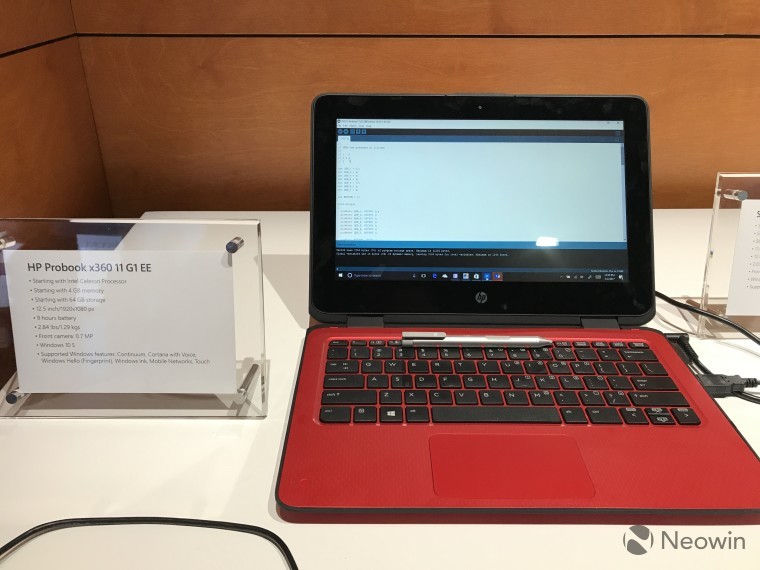
Microsoft's spotlight was shining on its Surface Laptop this week, but the company also showcased a range of much more affordable PCs, some of which were priced as low as $229. Rich Woods took a closer look at some of those devices, which run Microsoft's new Windows 10 S edition.

And Rich also got his paws on LeEco's new Le Pro 3, a flagship-class handset with a Snapdragon 821 processor, at a mid-range price point. Check out his unboxing video, including first impressions of the new device.
Stay tuned to Neowin in the days ahead for what’s sure to be another exciting week, filled with official news, lots of updates, and plenty of insights from around the world of technology.
For now, though, there’s lots more to read across the site – including all sorts of interesting discussions over on our forums. If you're not yet a Neowin member, it's quick, easy and free to register - and you'll also see fewer ads on the site when you're logged in!
From all of us
on the Neowin team,
have a great weekend!

















